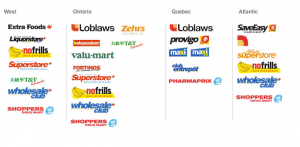The Indian act, passed in 1876, served initially to assimilate the First Nations people into European culture, giving the federal government jurisdiction over “Indian status, land, resources, wills, education, band administration and so on.” Although it does provide some protection for First Nations people, including tax exemptions, in many ways the act inhibits sustainable economic and infrastructural growth for aboriginals.
Recently, in early July 2014, the Tsilhqot’in nation in BC finally won a lengthy battle in the Canadian supreme court in defense of their land and title rights– an event with enormous impacts both in the Aboriginal community and to Canadian businesses who are now restricted by Political factors and government ruling and hence have additional Threats to their business models, one of which is the Environmental factor. On the contrary, this event brings a promising start to local Aboriginal businesses and landowners who now have tremendous Opportunities to expand their businesses, own land, and protect their environment. An unfulfilled potential for environmentally friendly and Aboriginal-respectful businesses emerges and brings hope for a more prosperous, respectful relationship between the First Nations people and businesses.
Image from: http://thetyee.ca/Opinion/2014/07/26/Tsilhqotin-With-Gloves/

 Follow
Follow



